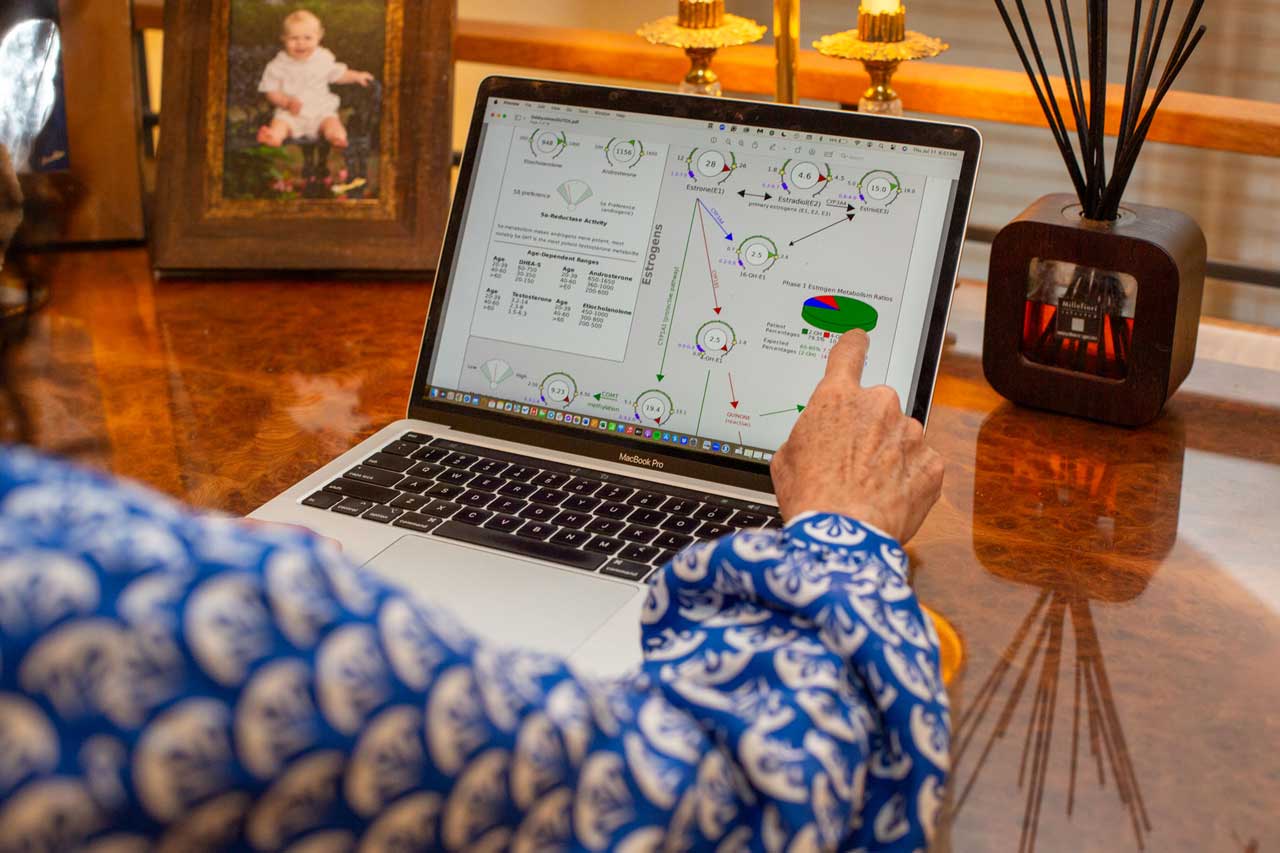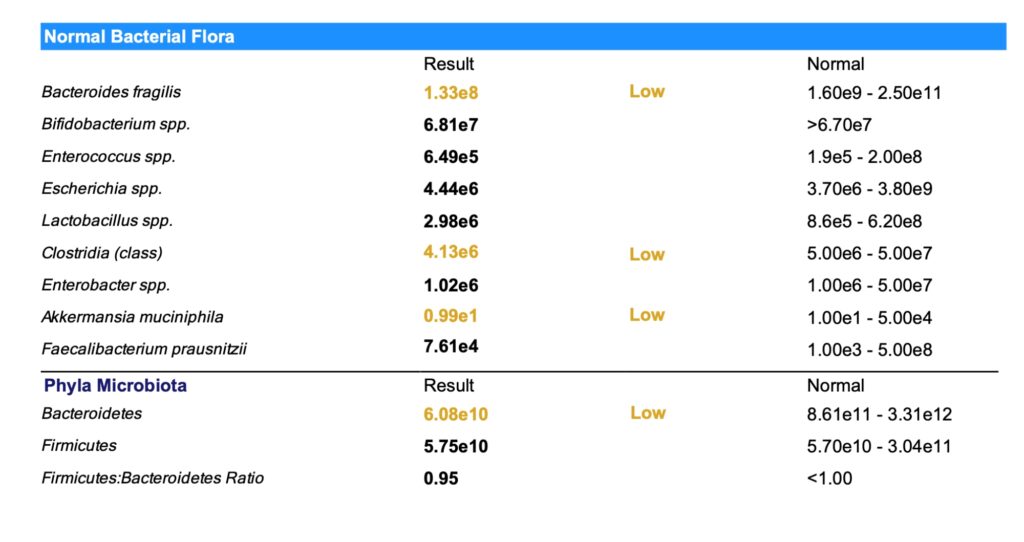GI Map
The GI Map
This test is a home stool test that looks at your microbiome. There is so much great information to be gathered in this test! It tells us if your good and bad gut bacteria is in balance, if you have any pathogens, active viruses, fungi/yeast, or parasites, how well you are digesting your fats, how the gut immune system is functioning, whether you have a gluten sensitivity, and gives us an overall look at the health and function of the immune, digestive, detoxification and energy systems of the body. When imbalances are present, this sets you up to not only have maldigestion and malabsorption issues, but also it makes it more likely that pathogens will stick around and thrive in your gut when they actually are supposed to be expelled in your poop.
Clients with imbalances on this test often complain of all sorts of gastrointestinal symptoms, but it also sets them up to have food sensitivities, hormone imbalances, detoxification issues, and even autoimmune conditions. The sample test here shows just a portion of this test, highlighting imbalances found in the good and bad bacteria of the gut, as well as the presence of a candida infection.
The second half of this test provides so much great information about how your gut and liver are functioning. There are markers that tell us how well your are digesting fats (Steatocrit), whether your pancreatic enzymes are sufficient for proper digestion (Elastase), whether your liver is working to detoxify your body effectively (B-Glucuronidase), whether your immune system is strong, overactive or depleted (Secretory IgA), whether you have gluten sensitivity (Anti-Gliadin), as well as markers for overall inflammation (Calprotectin). This test is done in the comfort of your home by providing a stool sample that is shipped to the lab. Who would have thought that so much amazing information could be gleaned from one test! In this example below, this client exhibits a compromise in her liver detox capabilities with her elevated B-Glucuronidase as well as decreased activity in her gut immune function as shown in her low Secretory IgA.

GI-MAP Mini Package
The GI-MAP is an at home stool test that gives us information about your microbiome, the balance of good and bad bacteria in your gut.



You’re Just 3 Steps Away from Having All the Energy You Need (and then some).
I’d love to share my experience, explain our process, and help you determine if our programs are a good fit for you.
Step 1:
Schedule a free call
Step 2:
Find the root cause.
Step 3:
Feel like yourself again.
